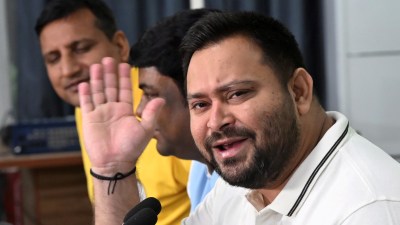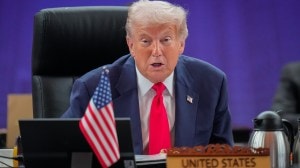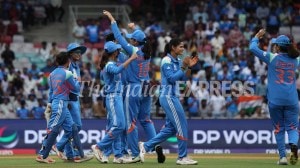I’m not an agent for the Vidarbha cause — Deshmukh
MUMBAI, SEPT 7: The Congress-led Democratic Front Government is heading for a major political crisis following fresh war of words between ...

MUMBAI, SEPT 7: The Congress-led Democratic Front Government is heading for a major political crisis following fresh war of words between arch political rivals, Chief Minister Vilasrao Deshmukh and Agriculture Minister Ranjit Deshmukh, over the demand for a separate Vidarbha State.
In an oblique reference to his Agriculture Minister, the Chief Minister said he was not a contractor for the cause of Vidarbha. Ranjit Deshmukh retaliated by saying that if the Chief Minister was not in favour of the demand, he should at least oppose it, since he belongs to Marathwada.
“No doubt, a section of legislators have extended support to the demand for a separate Vidarbha, there is other side to the demand. Congress activists from Akola, Amravati, Buldhana and even from Nagpur, have strongly opposed the proposal on the ground that it would not be financially-viable,” Vilasrao Deshmukh said.
When his attention was drawn to Ranjit Deshmukh’s threat to the effect that if a resolution for the formation of a separate Vidarbha State was not moved in the winter session of the State Legislature, Congress Legislators would form a separate, independent group, the Chief Minister hoped that the Agriculture Minister would not take such an extreme step. “I can understand the sentiments, but such a step would certainly amount to indiscipline,” he added.
The Chief Minister said while the Congress was yet to take a decision on the Vidarbha demand, he would have to consult the Coalition Government’s allies. “We will have to convene a meeting of the Democratic Front Coordination Committee to discuss the demand. We will have to take a decision after considering the views of the Centre and all political parties,” he said.
The Chief Minister also referred to former Rajya Sabha member Shrikant Jichkar’s study on the issue. He said if Jichkar’s report was to be believed, the formation of Vidarbha would be a disastrous step in view of the inadequate resources.
“No doubt that the progress of development was very slow, but we have already taken remedial measures. We have already set up statutory development boards as per the provisions of the Constitution for the removal of the regional imbalance. Now, the entire programme is monitored by the Governor,” the Chief Minister added.
Ranjit Deshmukh, on the other hand, reiterated that he was undetterred by the Chief Minister’s warning. On the contrary, he was determined to intensify his struggle till the demand was met. “By demanding a separate Vidarbha or organising party legislators, I have not committed any indiscipline. I am well within my rights to demand a separate State,” the State Agriculture Minister said.
On Ranjit Deshmukh’s adverse comments against him on the issue, the Chief Minister denied that the Minister would speak against him. However, the Chief Minister subsequently remarked, if he had really passed any statements against him, it was unfortunate and improper.
On his part, Ranjit Deshmukh said ever since the launching of a fresh agitation for a separate Vidarbha, he had never uttered a single word against the Chief Minister. He had only stated that since both the Chief Minister and MPCC President Govindrao Adik were not from Vidarbha, they should not make any statement without consulting politicians from Vidarbha.
The Agriculture Minister said he would soon lead a delegation to Congress President Sonia Gandhi to press for the demand. “I am sure, Sonia Gandhi will concede our demand, since all the legislators as well as party MPs have extended support to it,” he said.
What the Constitution says
Parliament is empowered to draft a bill for a new state without a resolution from the concerned state assembly.
On his recent visit to Nagpur, the Prime Minister told a Congress delegation that the Centre conceded the demand for Uttaranchal, Vanachal and Chhatisgarh because the respective state assemblies had passed resolutions for their formation. He had said since a precedent had been set, the same would have to be followed in case of the demand for a separate state of Vidarbha.
But, according to a senior laywer, under Article 2 of the Constitution, Parliament may by law establish new states on such terms as it thinks fit.Also, under Article 3, the Parliament may by law, form a new state by separation of territory of any state or by uniting two or more states or parts of state. Article 3 provides that the Centre should send a draft bill first to the President, who would then refer it to the state assembly. It is after evaluating the assembly’s deliberations that the President will determine whether or not to require the Central government to introduce the bill in Parliament.
Under such circumstances, if the Centre is keen to create a separate state of Vidarbha, it could follow the procedure laid down under Article 3 without waiting for the assembly to first pass a resolution.






- 01
- 02
- 03
- 04
- 05

























